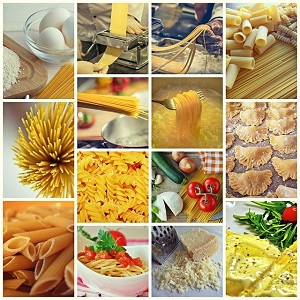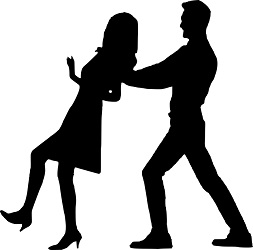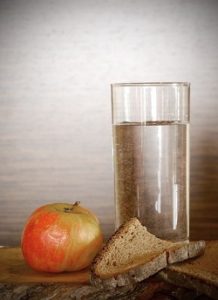
during this time. I have no great insights, and there are tons of food blogs out there. Just a few things that have occurred to me:
- Don’t waste food. I have a container of ricotta cheese that I bought for something–can’t quite remember what–and didn’t use up completely. Friday morning I decided to make Jim and me a ricotta, pesto and Parmesan omelet with tomato sauce, with the ricotta dolloped over the top. I opened the container. It looked a little pink, which is how such items start looking before they get actually, like, moldy. But the stuff underneath the top layer was perfectly fine. (Note that if it had actually been green I would have thrown it out. As I’ve said to Jim on any number of occasions, “It isn’t worth getting sick just to use up a dollar’s worth of food.” So I am pretty cautious. But in this case it seemed fine, and it was going to be heated.) There was some left after the omelet and I was tempted just to toss the container, but then I thought, ‘No, wait–I can make those ricotta-black pepper rolls with this.” Which I will probably do for this evening. They’ll be baked in a 350-degree+ oven, so any microbes will meet their deaths. It’s a small issue, as it’s a small amount of food, but it doesn’t hurt to have a frugal mindset even in the most robust of times.
- Take an inventory. Probably everyone reading this has already taken stock, but I haven’t as yet. Especially if you have one of those pantries with deep shelves, or a backup pantry somewhere, it’s all too easy to lose sight of what’s in there. In our old house I had two pantries for our little three-person household, one in the kitchen and one in the laundry room. I was always saying that I ought to have some kind of running list on the doors so I could cross items off as I used them and add what I bought. But I need to pull everything out and just see what’s there.
- Buy wisely. Don’t get items with short shelf life. So I bought Napa cabbage this past weekend but not lettuce. We can have some nice fresh greens that won’t have quite the tendency to wilt away. The freezer is stuffed. I have lots of packages of pasta and dried beans as well as cans of beans and coconut milk. I have somewhere around ten pounds of unbleached all-purpose flour, plus maybe 25 pounds of wheat that I can grind in my grain mill. There’s a full, unopened bag of yeast in the pantry. Did you know that, at least according to Michael Pollan, a person can indeed “live on bread alone”? (Humanly, practically speaking, that is.) If you give someone a bag of flour and some water, and that’s all he has to eat, he’ll die of malnutrition. But if that person makes bread out of the flour and water, which wouldn’t require buying yeast but just leaving the flour-and-water mixture sitting out long enough to ferment and then baking it, he/she could live perfectly well. So interesting! (I’ve felt at times that I had too much flour/wheat on hand, but now I’m glad to have it. I can’t claim any particular wisdom in buying these items in bulk–it just sort of happened that way. I even bought a big mega-pack of toilet paper at Costco last Wednesday, not because I thought there would be a shortage but because we were out. If I’d waited one more day to go shopping . . . well, I wouldn’t be feeling so safe and secure in that department as I sit here.)



 My husband listens to a podcast called “The Art of Manliness,” but it should really be called “The Art of Living Well.” They’re up to well over 500 episodes, with different guests and topics.
My husband listens to a podcast called “The Art of Manliness,” but it should really be called “The Art of Living Well.” They’re up to well over 500 episodes, with different guests and topics.  I wrote last week about my accidental weight loss of 2-3 pounds and how I’m trying to hang onto it. So far, so good. Yesterday was 115.5. I have my A1C reading on Friday, so we’ll hope that’s okay, too. But, just to show that life is always throwing a curve ball, that very same Wednesday I started getting sick, which doesn’t happen too often. Once in a while, though, maybe every other year or so, my chronic allergies and my chronic sinus problems combine to give me an actual infection. Nothing serious, and I’m not going to share any gross details about nose blowing or anything, but I was laid low through Monday after caving in and going to a doctor last Friday. Once I started in on antibiotics there was a definite improvement, but the process took several days. No floor exercises or walks took place during that time, and then we started in with snow and cold as of Tuesday. I wasn’t going to get out on the trail with those conditions, so the dreaded treadmill was in the cards. I wimped out yesterday but finally got myself upstairs today, putting in 45 minutes at a fairly slow pace and also doing a full round of the floor thingies. (I should do a post sometime about what I do, but it would have to involve a video. Have to think about that one. Let me just say here that I’m a firm believer in doing something simple and short, qualities that make the routine much easier to stick with.) In theory I’m back in the saddle.
I wrote last week about my accidental weight loss of 2-3 pounds and how I’m trying to hang onto it. So far, so good. Yesterday was 115.5. I have my A1C reading on Friday, so we’ll hope that’s okay, too. But, just to show that life is always throwing a curve ball, that very same Wednesday I started getting sick, which doesn’t happen too often. Once in a while, though, maybe every other year or so, my chronic allergies and my chronic sinus problems combine to give me an actual infection. Nothing serious, and I’m not going to share any gross details about nose blowing or anything, but I was laid low through Monday after caving in and going to a doctor last Friday. Once I started in on antibiotics there was a definite improvement, but the process took several days. No floor exercises or walks took place during that time, and then we started in with snow and cold as of Tuesday. I wasn’t going to get out on the trail with those conditions, so the dreaded treadmill was in the cards. I wimped out yesterday but finally got myself upstairs today, putting in 45 minutes at a fairly slow pace and also doing a full round of the floor thingies. (I should do a post sometime about what I do, but it would have to involve a video. Have to think about that one. Let me just say here that I’m a firm believer in doing something simple and short, qualities that make the routine much easier to stick with.) In theory I’m back in the saddle. This morning on the “Happier” podcast Gretchen Rubin gave a truly shocking statistic:
This morning on the “Happier” podcast Gretchen Rubin gave a truly shocking statistic:

